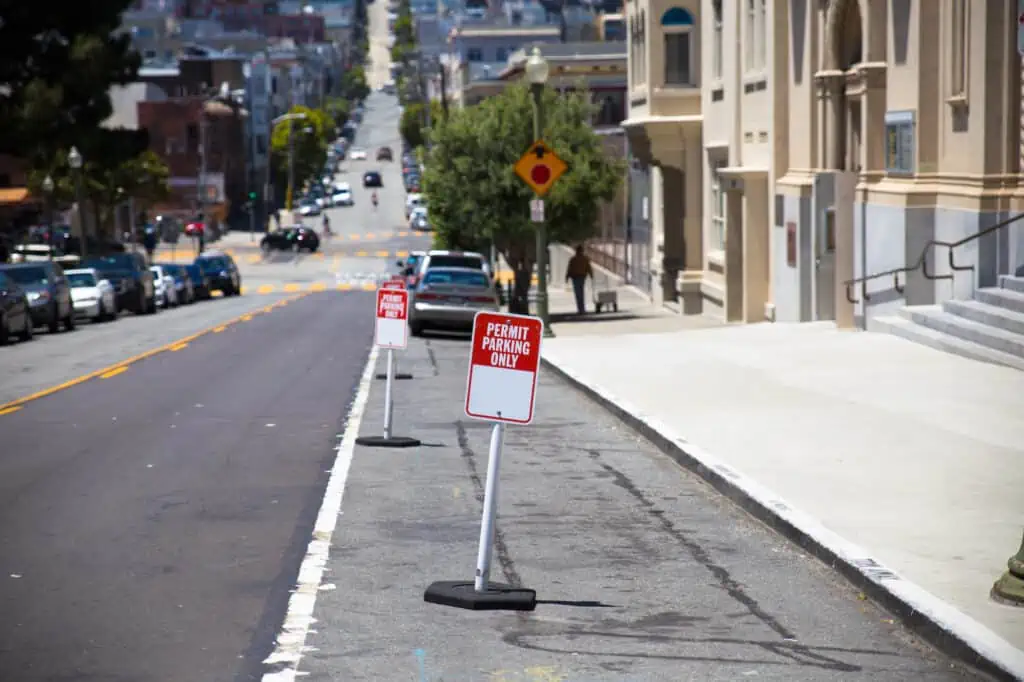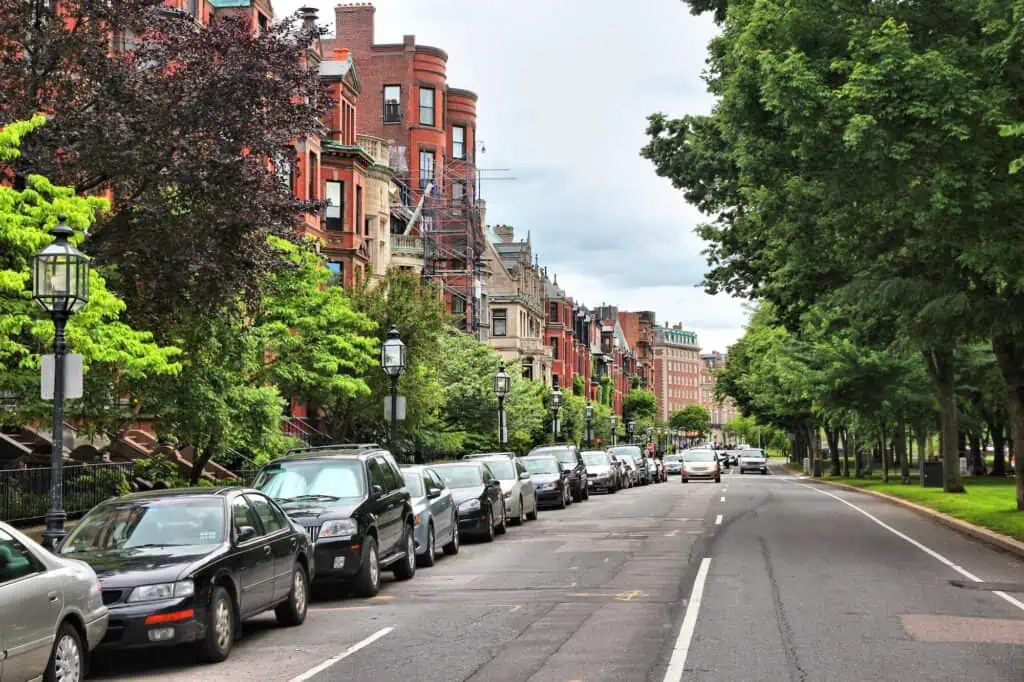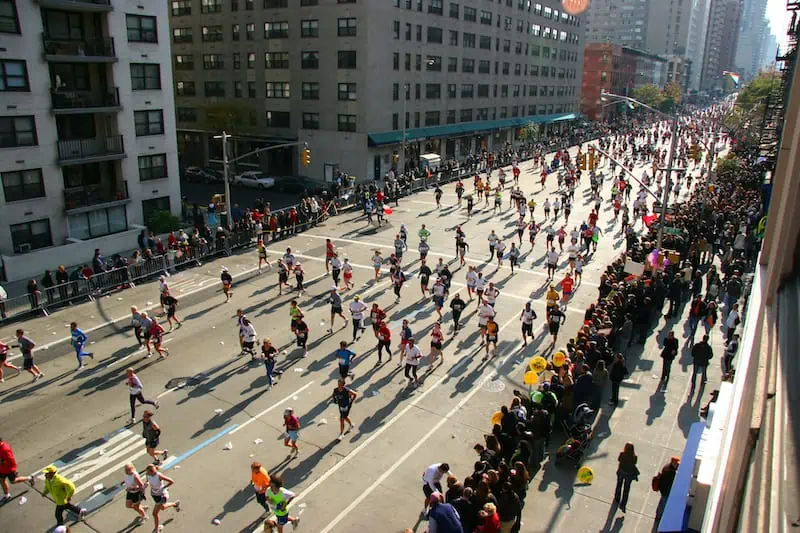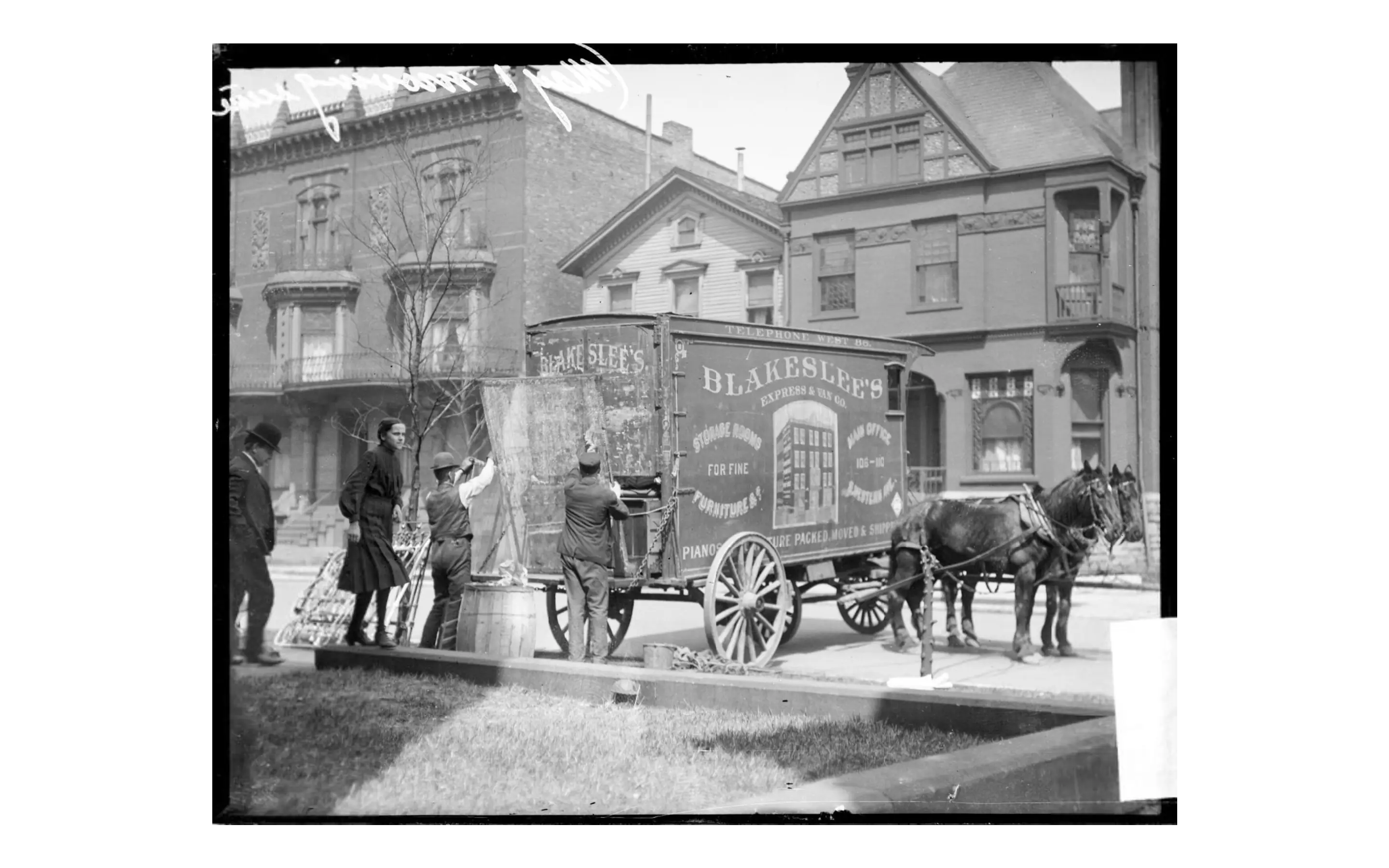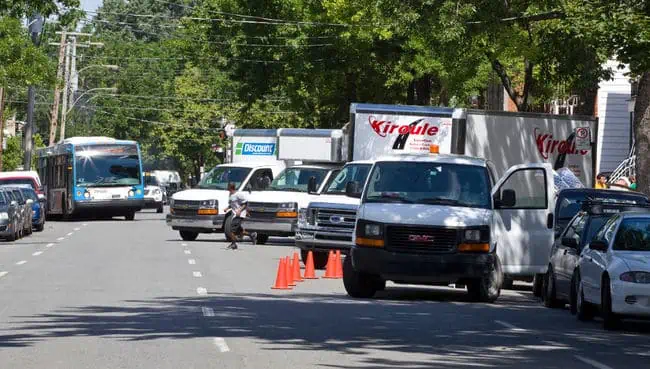If you live in one of the bigger U.S. cities, chances are you’re well acquainted with the inconvenience of clogged streets caused by double-parked vehicles. And you’re also familiar with what a pain it can be to park your car near your home — let alone a moving truck! Thankfully, some of these cities offer temporary single-use parking permits for moving, AKA moving permits.
But do you actually need a parking permit for your upcoming move? And if you do, how on earth do you get one? The subject of parking permits is a complex one, and every city has its own way of doing things, but this article will help give you an overview of what to expect.
What Is a Parking Permit?
A parking permit typically grants permission to park a specified vehicle for a day or two on a future date. Cities typically charge for these permits, and they must be applied for at least three to ten days prior to the project start date. The fees can range from $5 to $400.
What you call a parking permit can differ from city to city, too. Some examples of names include:
- Obstruction permit
- Street use permit
- Encroachment permit
- Occupancy permit
But a city will never call it a “moving permit”, even if you’re using your parking permit for moving.
A parking permit also usually grants the ability to enforce parking at the specified location, which is key to ensuring the spot stays open for your moving truck. This is why parking permits almost always come with official cardboard signs that say NO PARKING or TOW ZONE. If vehicles ignore the signs on the date(s) of the permit, the requester can call the city to have the violating vehicles towed.
These signs must be posted at the location visible to traffic about three days prior to the job start date. Some cities handle the posting themselves, but most require the requester to do the posting.
What’s the benefit of a parking permit for moving?
For anyone who lives in a congested city, the benefits are obvious. To parallel park a moving truck, you need about 40 feet of space, which is two consecutive parking spaces. For those of us who live in a city like Boston, Philadelphia, Seattle, or San Francisco, we know that finding two consecutive parking spaces on your street is practically impossible, let alone finding two open spaces in front of your home on the exact day you need them.
When you’re moving a home’s worth of furniture and other heavy items, you want your moving truck to be as close to the door as possible. Imagine lugging your couch for three city blocks. No fun!
“…[N]ot all cities issue parking permits for moves, most notably New York City. You should double-check that the one you’re moving to does.”
“But I’m hiring a mover,” you say. “They’re doing all the heavy lifting for me, so why should I worry about it?”
Well, first of all, while movers appear to be superhuman gods, they get tired too. Secondly, time is money. The longer it takes for the job to be complete, the more your movers will charge you. Not only that, but most movers charge “long carry” fees, which can add up over time.
I know what you’re going to say next: “Can’t we just double-park and throw on the hazards? I see trucks doing that all the time.”
Sure you can — if you don’t mind paying exorbitant fees for multiple parking tickets. When truck drivers double park, it’s often for a quick in-and-out delivery. Moving can take hours, sometimes days, which will result in tickets, towing, or worse. Plus, it’s not very neighborly to block traffic if you live on a narrow street. You really don’t want your first or last impression to be the person who made driving difficult because they parked somewhere they shouldn’t have.
See prices for local moving labor. Read real customer reviews. Easily book your help online.
Parking Permits Process
Parking policies are different in every city, but the basic procedure for most cities is:
- Permit gets applied for
- City approves permit
- City charges for total
- City issues and provides permit document
- City issues and provides official NO PARKING or TOW ZONE signs
- Signs get posted at the location prior to the start date
- Moving crew calls for enforcement on move day (if needed)
- Violating vehicles get towed to provide space for the job (if needed)
But beyond these basics, every city is an entirely different beast. Here’s a list of some of the details that can vary from city to city:
- Permit name
- Department that issues the permit application procedure
- Documents required
- Permit fees
- Lead time (how many days in advance you need to secure your permit)
- Sign posting lead time (how many days in advance you need to post signage)
- Fees
- Payment method
- Enforcement
- Who posts the signs (whether it’s the city or you)
- Metered versus residential parking
- Sign verification
- Right-of-way policies
- Street cleaning
- Maximum and minimum days allowed for length of permit
- Differences in neighborhoods
And the list goes on. Just to give you an idea of how much work this entails, let’s take two cities as examples:
Washington, DC Moving Permits
- Lead time: 4 days
- Permit name: Public Space Occupancy/ Parking Permit
- Issued by: Transportation department
If you’re moving in Washington, D.C., you will likely need a parking permit for your move, as parking is very tight. As you know from above, the typical moving vehicle requires 40 feet of on-street parking (two consecutive parking spaces). Securing these spaces in front of your address on the date of the move is almost impossible unless you go through the process of obtaining a city-issued moving vehicle occupancy permit. You also have to retrieve and post city official TOW ZONE signs and verify those signs 72 hours prior to the start date.
City of Boston Moving Permits
- Lead time: 4 to 6 days
- Permit name: Moving Permit
- Issued by: Parking Clerk
If you’re planning on using a moving truck or moving container in Boston, you’ll most likely need a parking permit as well. Boston is a very congested city, and while this is part of its charm, it makes finding two open, consecutive parking spaces near your address on the date of your move practically impossible unless you’ve secured a permit.
Unfortunately, the city of Boston doesn’t make this easy. The best way to get a parking permit in Boston is to visit City Hall about one week in advance, wait in line at the permit counter on the second floor, and apply and pay for the permit. Then, you have to obtain the TOW ZONE signs, and post the signs on trees or poles in front of the address three days prior to the start date.
Do I Need a Moving Permit?
Wondering whether or not you’ll need a parking permit for moving day? The first step is to consider your current location, as well as your destination, and come up with a plan for parking your moving truck. Here are a few common scenarios:
- You have a driveway spacious enough to park a large truck: Good for you! But keep in mind some moving companies avoid parking on private property to avoid damage claims, so you’ll want to check with your mover ahead of time to make sure this is an option. If you can use your driveway, then there’s no need for a permit.
- You live in a condo or a larger building: Check with building management to see if your building has a loading dock or solution for your moving vehicle, as you’ll likely need to reserve the loading dock and/or elevator in advance.
- No driveway or loading dock is available: This means you may need to park your moving truck on the street. You’ll need to find the nearest legal street parking, which is hopefully directly in front of the building. If this is usually open and accessible, you probably don’t need a parking permit. If spots can be hard to come by here, it’s probably best to secure a permit.
- You live in a crowded neighborhood where an open parking space is occasionally limited: In this case, it might be a good idea to get a moving permit. Your neighbors will be much more tolerant of interruptions or obstacles if you go through the proper channels and post signs before your moving day.
However, not all cities issue parking permits for moves, most notably New York City. You should double-check that the one you’re moving to does.
See prices for local moving labor. Read real customer reviews. Easily book your help online.
How To Get a Moving Permit
This can be a challenge, as cities don’t always make it straightforward. You first need to find out if the city offers this type of permit and then how to obtain it.
Each city’s process is different. Some cities will make you physically visit City Hall and wait in line at a counter. Most cities will make you post NO PARKING signs three days prior to the start date, which isn’t always an option for people moving from out of town.
“A parking permit also usually grants the ability to enforce parking at the specified location, which is key to ensuring the spot stays open for your moving truck.”
For this reason, many people opt to hire a third-party company like Permit Puller to help them secure a permit. Since parking permits are their area of expertise, a company like this will know all the ins and outs of moving permits for your particular city. They’ll also do all the leg work for you, including posting the NO PARKING signs at your address the required number of days before moving day.
If you decide to go the DIY route, just make sure to contact your city well ahead of your move. The application process is rarely quick or simple and can involve multiple departments, cobbled-together websites, long lines, and unfriendly bureaucrats. Even so, it’s well worth having a parking permit on moving day to ensure your move goes as smoothly as possible.

